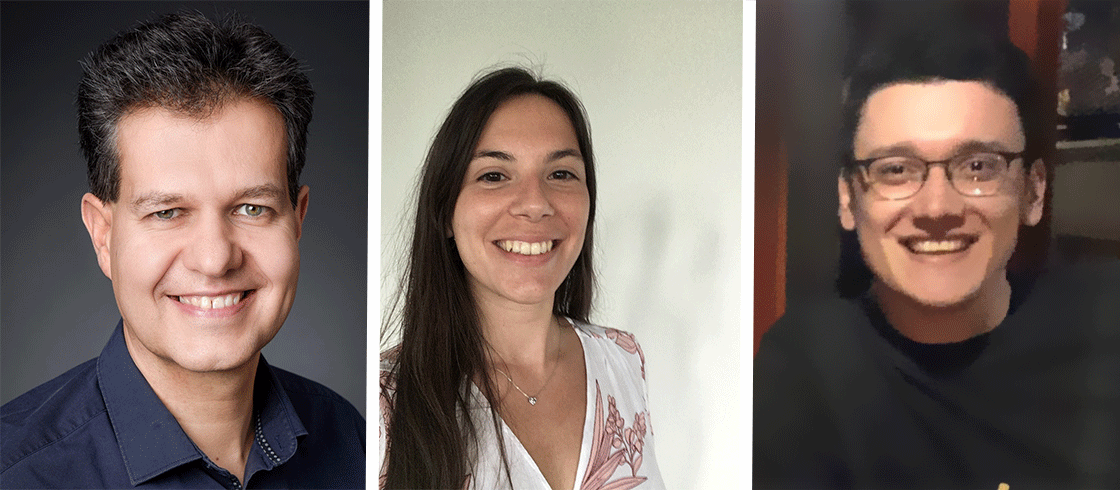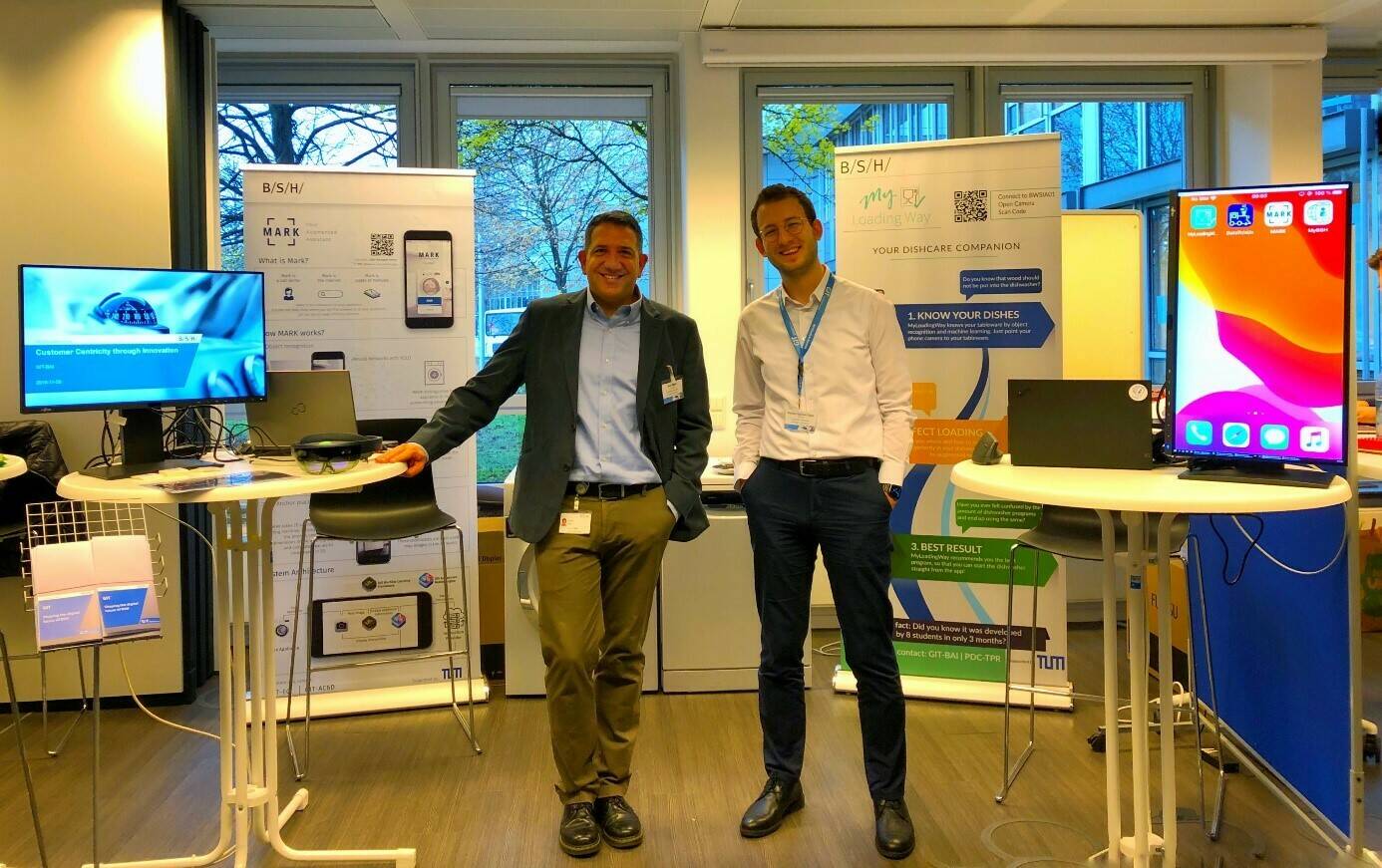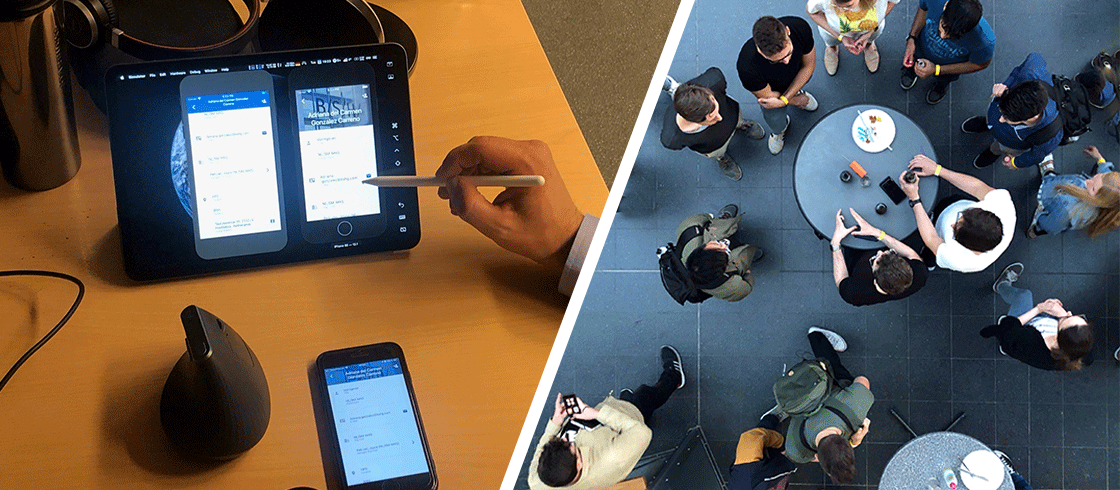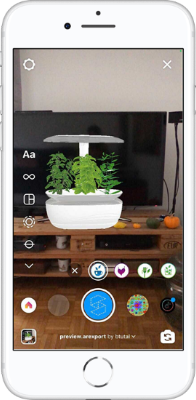Experiments That Can Change Life at Home: Meet BSH’s Werkstatt
Besides producing high quality solutions that seek to improve consumers’ quality of life at home, BSH also strives to bring new digital service offerings that explore the potential of connected home appliances. In continuous collaboration with universities, Werkstatt was born: a virtual working group and hub of technology-entrepreneurs, which make experimenting with new technologies and new user experiences possible.
Emerging Technologies like machine learning have increasingly become present in our daily lives to reduce people’s workloads and increase efficiency. Behind all of the technology that makes this possible, there is an even more valuable asset: people. We interviewed the team of Werkstatt, BSH’s new digital lab, to learn about their experience in shaping the future of home appliances through technology.
Meet the Interviewees
Baris Taptik
IT Innovation Manager with 24 years of work experience, started working at BSH 2016 as Global Application Services in Istanbul, Previous work experience with SAP, Microsoft. Has a passion for technology, innovation, and consumer-centricity.
Frank Schäfer
Technology Manager with 24 years of work experience, started working at BSH in 2015 as Technology Manager. Previously worked at Siemens and Giesecke & Devrient. Has a passion for new technologies.
Berkay Tutal
IT Innovation Analyst with 7 years of work experience, started working at BSH in 2015 as Working Student in Istanbul. Previously co-founded a startup and worked as Tech Journalist. Loves everything about tech, almost has a FOMO (Fear of Missing Out) for new technologies.
Cristina Montanes
Started working at BSH 2020 as Trainee in the Global Graduate Accelerator Program. Studied Industrial Design Engineering and Product Development. Has taken part in 3D design for virtual environments and mobile apps at BSH.
Ufuk Kurt
Working Student since 2020, Computer Science Master student at Munich’s Technical University (TUM). Previously worked as a mobile application developer. Loves Machine Learning.

From left to right: Frank, Cristina, and Ufuk
What is Werkstatt and why is it important?
Baris: BSH Werkstatt is a lab that transfers the latest digital solutions to BSH with the focus on giving consumers and employees entirely new experiences with emerging technologies. The team builds and launches new apps and services, using emerging digital technologies that live up to BSH’s purpose to “improve quality of life at home”.
In the future, Werkstatt will further increase its collaboration with universities and tech industry leaders.
“Failure is necessary to create the unlikely – if you don't try something unlikely, you will never do it.” Baris Taptik, IT Innovation Manager at BSH
So is Werkstatt a traditional lab or is it a place filled with robots?
Baris: Werkstatt is a virtual lab, and due to Corona, we are mainly working from home. From time to time, we do need to work with actual appliances as well, especially when projects are related to augmented reality. We have some vacuum cleaners, the SmartGrow, dishwashers, and washing machines at the office for some AR projects.

Baris (left) and Berkay (right) at the Werkstatt lab
Is Werkstatt only for colleagues in Munich?
Berkay: No, not necessarily. Since BSH Werkstatt is a virtual community and hub of technology enthusiasts, colleagues from all over the world can join our experiments and build them with us.
Frank: BSH Werkstatt will also raise awareness for young talents and university students by emerging technology experiments and sharing some of its work with the Open Source community. We hope to eventually attract young talents with fresh ideas and new technical skills to grow our teams.
What types of technologies do you use?
Berkay: I think we can say clearly that we welcome every technology. Yes, we do have some best practices, preferred languages/frameworks when it comes to testing out new use-cases but we are also keeping our eyes open for new programming languages (Dart, Kotlin…), frameworks (Flutter, React Native…), devices (HoloLens, Tooz Glasses), etc. so that we can find out if there is a more potential there.
Do the projects have a real-life application or are they more exploratory?
Frank: At BSH Werkstatt, all the projects have real-life application areas. This is one of the main aims of Werkstatt. At the same time, we are exploring new things, like the use of augmented reality, in our developing phase.
Are all projects interdisciplinary?
Cristina: Yes, to succeed in a software innovation project, you need to have diverse skills and be willing to learn from other fields. I am lucky to be in a team with a variety of skills so I learn new things on every new project, like new technologies, time and project management, or design patterns, for example.
What types of projects do you work on?
Berkay: We already have a quite versatile and multifaceted team, and we are improving by gaining new capabilities every day. This gives us the opportunity to work on a variety of projects from augmented reality user manuals to machine learning for recipe generation and low code applications or optimization of service technician operations in customer service.
Please tell us about a project you completed successfully.
Cristina: We created an augmented reality Instagram filter for Bosch’s latest version of the SmartGrow Life. It was the first time we did it. That is why it felt a bit challenging at the beginning, but we did great teamwork and it turned out very good.
Baris: With this filter, consumers who are using Facebook or Instagram can experience the new SmartGrow Life in their own home through their mobile phones with Augmented Reality. There are different plant and garden combinations. Additionally, consumers can record stories experimenting with the filter and post them on their Instagram or Facebook accounts.
Werkstatt’s Augmented reality filter for the SmartGrow Life appliance
How do you assure software quality for said innovation?
Frank: Although BSH Werkstatt is about experimenting and trying new digital technologies, we believe in the two attributes of software quality: defect management and quality attributes. Communicating and testing are key, also leveraging automated testing tools while leaving room for innovation, feedback cycles, and iterations.
How do you come up with projects like these?
Cristina: I am quite new to the company, so I am finding my method and learning on the way. Working at BSH Werkstatt gives me the opportunity to see every aspect of the project. At first, I always try to understand the requirements correctly. If it is a new kind of project for me, like the SmartGrow Life Instagram filter, I spend some time researching. Later, when I am ready to start, I have the confidence to reach out to my team or other experts within the organization. It is a big company, and one might find other colleagues with similar experience or expertise.
“In the end, we are a very big team, working for the same goal.” Cristina Montanes, Trainee in the Global Graduate Accelerator Program
You don’t think of BSH immediately when someone says “software development” – what’s fun about programming for home appliances?
Ufuk: I always find it very interesting and charming to develop something that can be seen in real-world applications. Home appliances are a very good example for that.
Cristina: I would say the fun part is to learn how much innovation is behind the home appliance sector. From my point of view, there are no barriers when innovating in software, especially nowadays.
Future of Software is...
Baris, Berkay: Constant change and constant learning. Augmented reality, artificial intelligence, natural language processing or even automatic code generation are just a few examples of new trends in the software domain that emerged during the last years. Werkstatt is an ideal place to experiment with these technologies, to learn about them, and to understand where they can be applied to meet the needs of our consumers.
If you could give advice to someone who would like to start programming, what would it be?
Berkay: Do projects. Big or small doesn't matter. With every project, you build another brick in your understanding of programming and problem-solving. Be patient, stay open-minded, and always keep learning.





